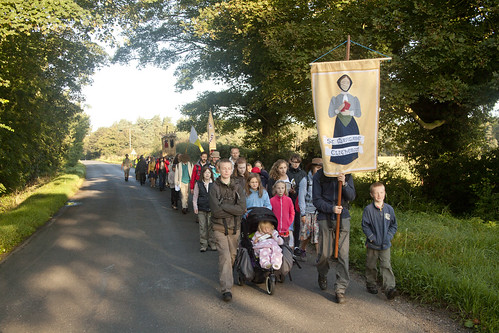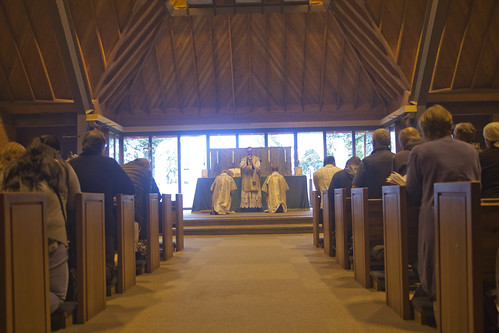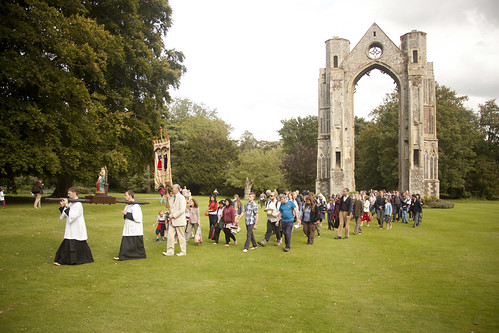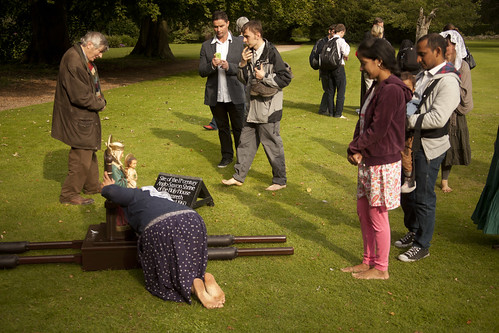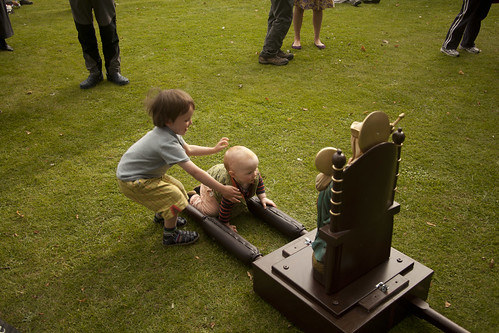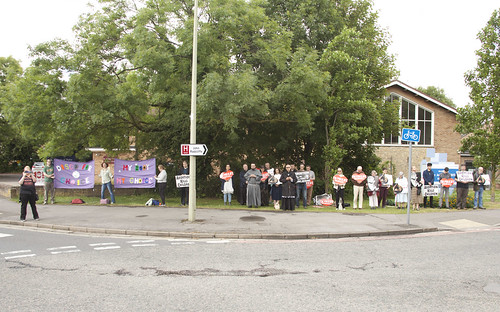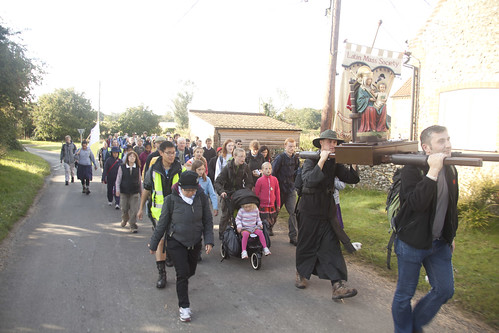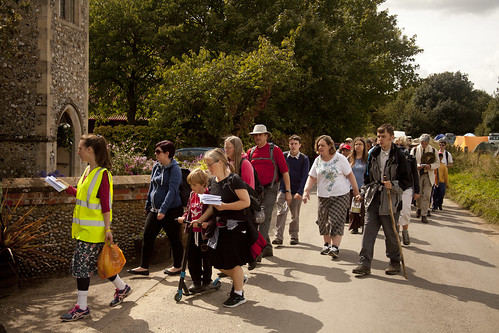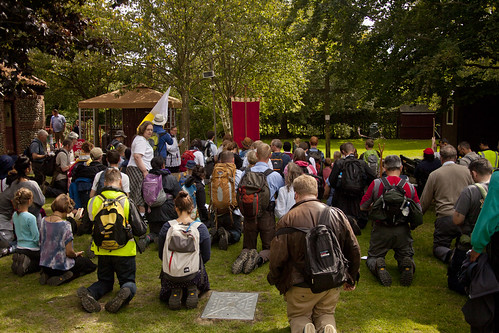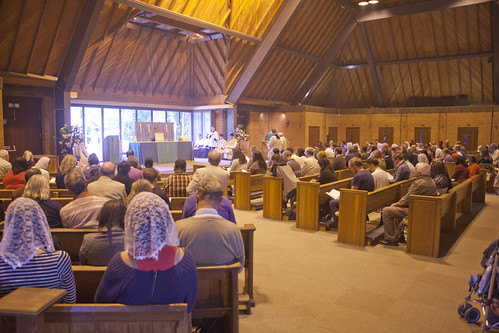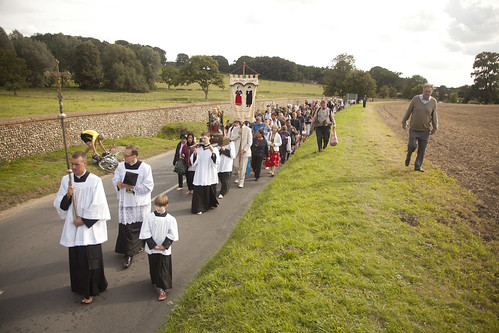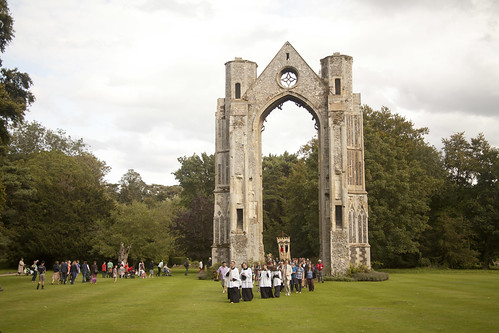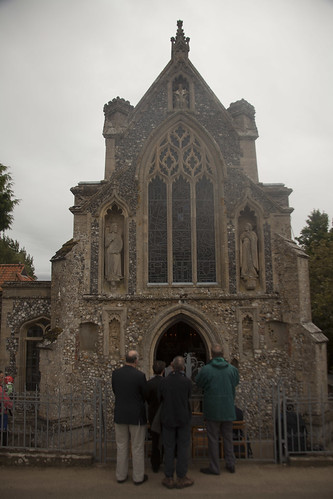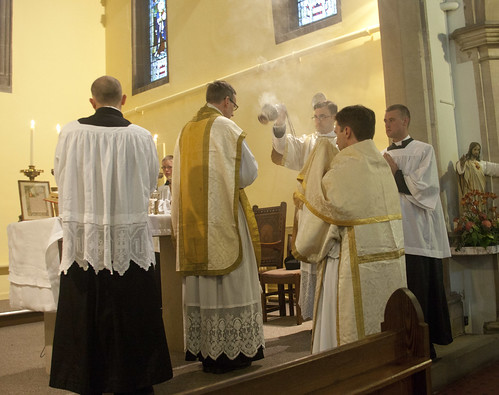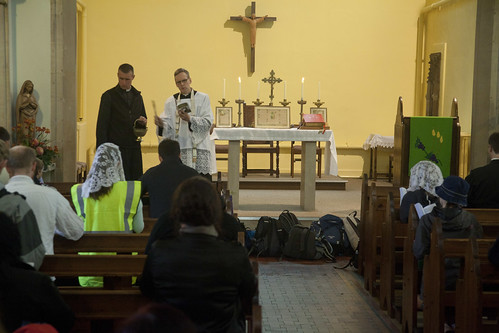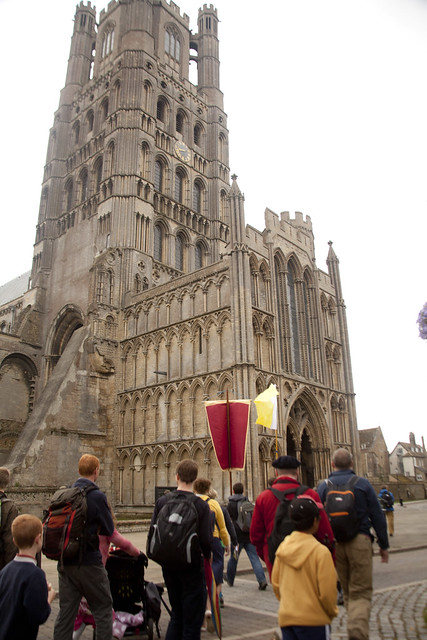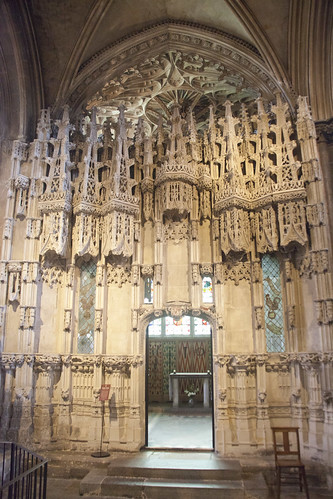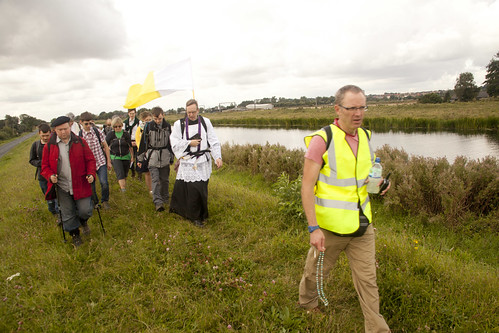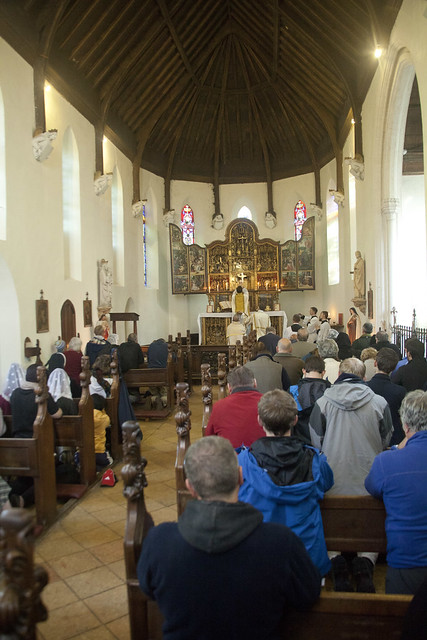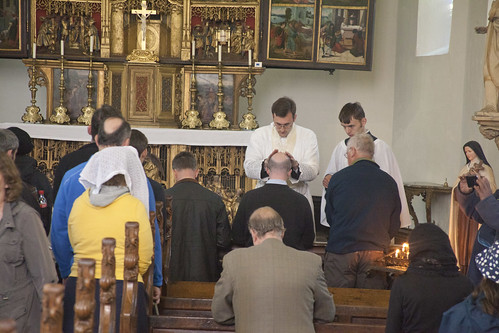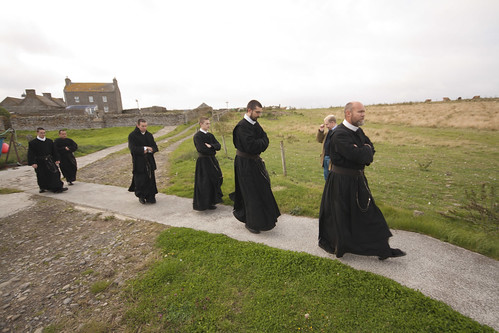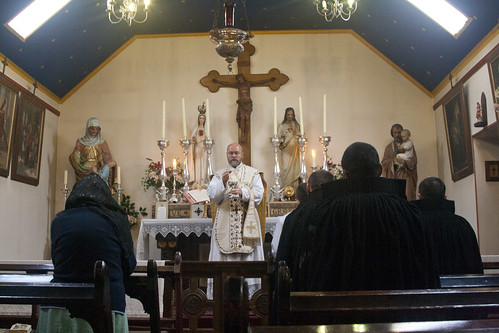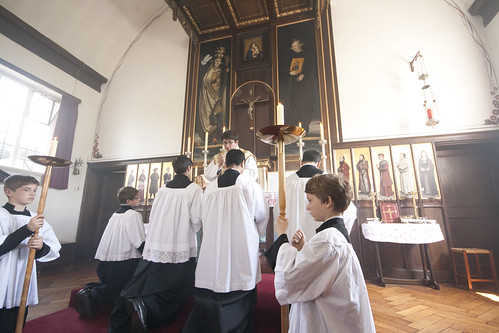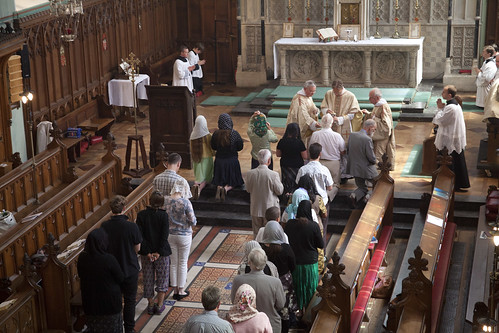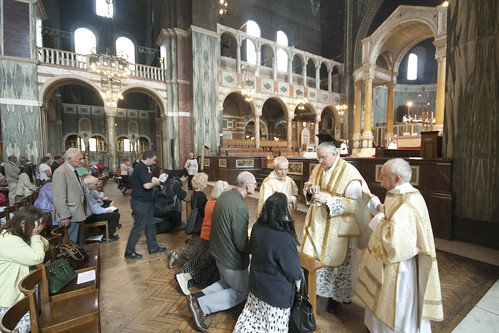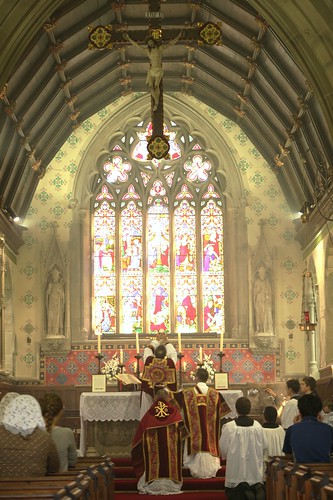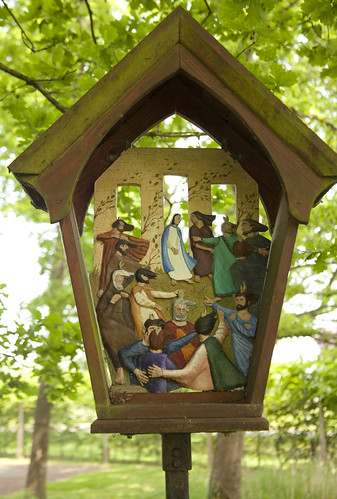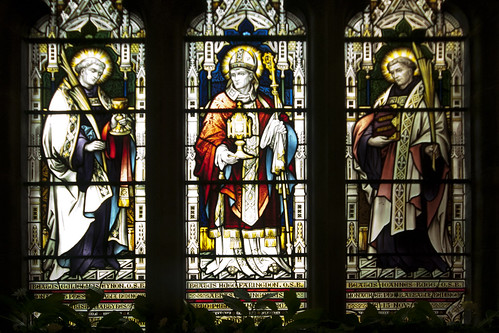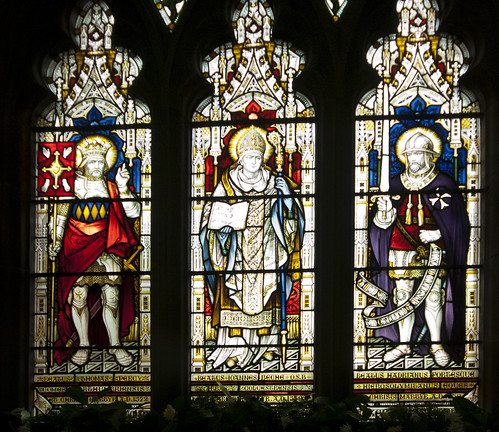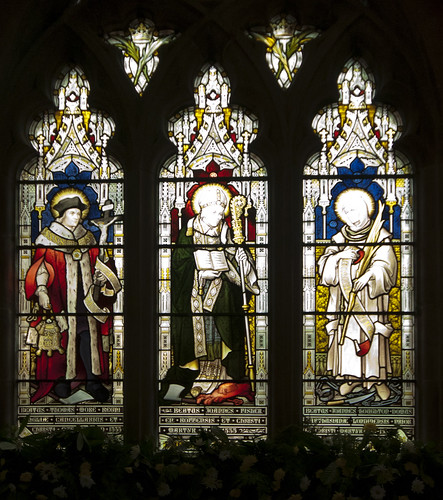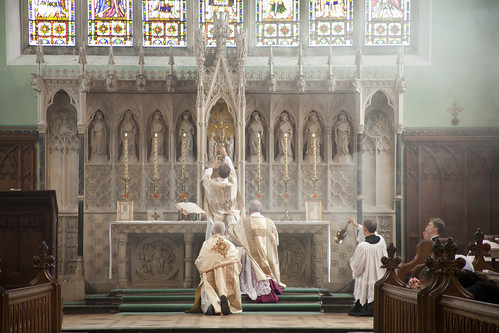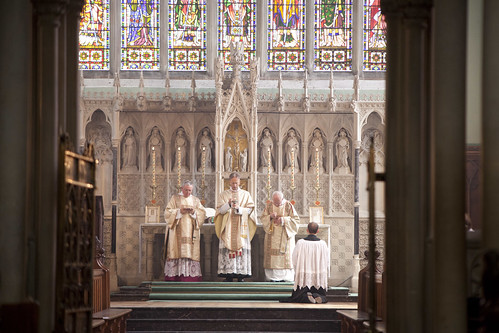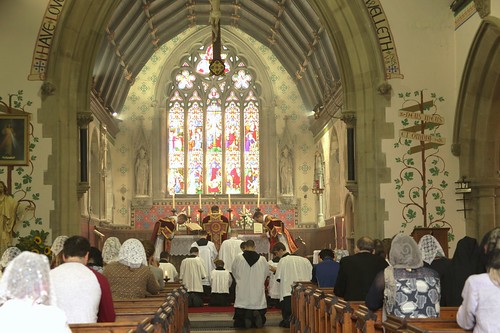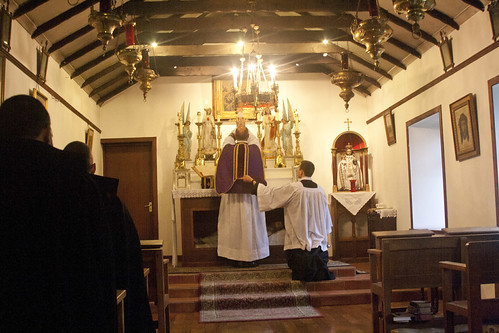
Such has been my busy-ness, and also thanks to some technical problems with my PC, I didn't have a chance to write properly about my visit to the Sons of the Most Holy Redeemer on their island, Papa Stronsay, in the Orkneys, where they have their monastery.
All my life I've had Summer holidays in a remote West Highland community, so the idea of being accessible only by sea, having your own electricity generator, and things like post and food being subject to weather conditions, are not entirely new. For most people, they represent a bit of a shock. You realise, out here, that you are at the furthest reaches, or a little beyond the furthest reaches, of the postal system, the health service, of everything commercial or governmental which we take for granted.
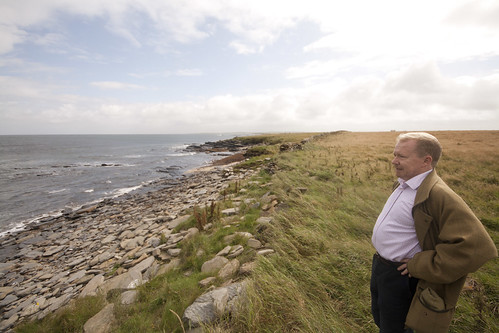
Such places are a challenge to live in, and even more so to make a living in. Everything which requires the help of an expert, spare parts or materials, or sending your own things out to any kind of market, is made complicated and expensive. The flip side is that once you get up there, you are obliged to adapt yourself to a different pace of life. You can't do things instantly. You can't whiz off to the big city. You can't put your plans into immediate execution. You do have a lot of physical things to do from which there is no escape. But you don't have the ringing telephone and the bleeping twitter account, the commute, the gossip, or the dealing with other people as frantic as you are.
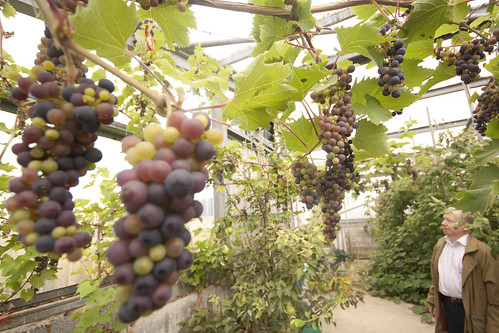
This has the effect that the stresses and exhaustion of life you have been trying to ignore catch up with you. It also means that the spiritual things you have been trying to ignore can catch up with you. In other words, it puts you into a contemplative frame of mind.
I realised when I was up there that Papa Stronsay, the ancient stronghold of the pre-Viking monks re-colonised by the sons of St Alphonsus, is ideal as the base, and the retreat, of the community. Their vocation and charism is to do serve the Church as missioners, and to make this effective by combining it with the contemplative life. So, and I think this is unique in the Church, they alternate by seasons, between living as contemplatives and going on the mission. Papa Stronsay could not be bettered as the base of the contemplative side of this double vocation.

The contemplative life has never been about staring at one's navel: the Office, spiritual reading, and private prayers, has since the Desert Fathers been combined with physical work. The Desert Fathers used to weave baskets: Orare et laborare. Not all kinds of work are equally suited to the contemplative life, and the emphasis has always been on physical work where possible. The Sons up on Papa Stronsay have sheep, beef and dairy cows, hens and geese, pigs, a couple of donkeys, and a large greenhouse with a fantastic array of fruit and vegetables, which we sampled while up there.
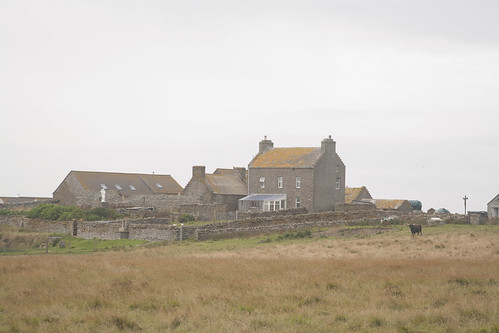
Their work as missioners has not yet begun in earnest, since at the moment the number of priests is still low, and they now have to provide priests for their house in Christchurch, New Zealand, as well as for the community on the island and the chapel on Stronsay Island, the tiny island next to their own which nevertheless runs to things like a post office, bank, and a regular ferry service.
They have a steady number of young members at different stages of training, and we will be hearing a lot more about them over the next few years. Readers of this blog know that Fr Michael Mary gave an electrifying concluding talk at the LMS One Day Conference in London in the spring: you can hear it here. They will also be leading the St Catherine's Trust Family Retreat next spring, in the Oratory School: Friday 10th April to Sunday 12th April 2015.
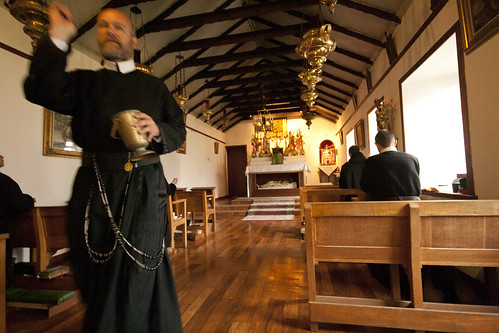
More photos here.You can keep up with the Sons of the Holy Redeemer, and support the work of the Sons, through the Friends of Papa Stronsay.
Support the work of the LMS by becoming an 'Anniversary Supporter'.
